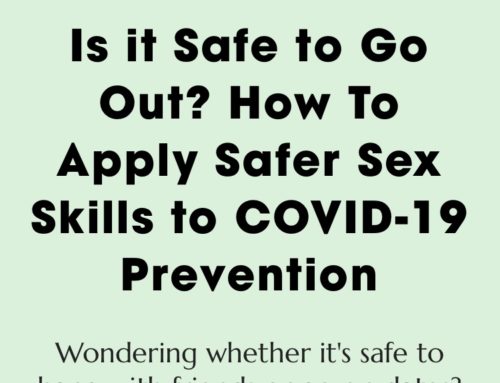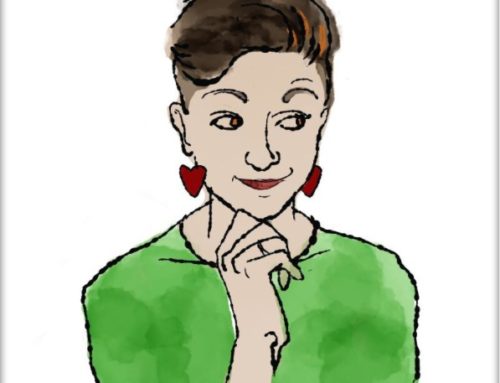The day the Supreme Court ruled to legalize same-sex marriage I sobbed into my boyfriend’s shoulder in bed for half an hour. My shoulders heaved and my dog looked worried as he frantically tried to lick my tears away.
When I managed to stifle my drool-crying, I lifted my head and a wobbly tightrope of snot connected his clavicle to my septum ring. “I don’tttt — (hiccup) — want to be straight — (hiccup) — FOREVER!” I sobbed dramatically, before jamming my face back into the snot-pool running down his arm.
But I’m not straight. I identify as both bisexual and queer (choosing my words wisely depending on who I’m talking to, their terminology knowledge or my mood). So, why did I feel straight, so snot-sobbing straight, the day same-sex couples were granted equal access to legal marriage in the United States?
Patrick and I had just gotten engaged . In fact, our engagement party was set to happen that very night. Though I had dated cis-men until I was 21, for the nine years prior to meeting Patrick I had primarily dated queer women . I had even married one in Massachusetts. And once you have a “lesbian wedding,” your “bisexual” label magically becomes a “lesbian” label in the public eye.
This never bothered me much. I had always felt special with my membership to this group of gender-fucking, pierced, shave-headed hotties in the LGBTQ community. I barely kissed the straight community goodbye when I left in 2006.
But when I fell in love with a straight man, I became instantly paranoid. Would my LGBTQ community membership card be revoked? I was devastated, a devastation that had been quietly seeping its way into my heart since I had enthusiastically said “Yes!” to Patrick’s question. It’s why I exploded in a tearful mess that historic day last June. I was overjoyed to read those headlines — and also so, so sad. I felt like the marriage equality victory and its celebration were no longer mine.
A few weeks ago, months after the marriage equality ruling, Alex Anders of the YouTube channel Bisexual Real Talk uploaded a video asking his fellow bisexuals to leave the LGBT community. He cited a 2015 study that implies the LGBT community might be doing more harm than good to the “B” part of the equation. The study reports that bisexual people internalize just as much biphobic discrimination from the “L” and “G” parts of the LGBT community as from the straight community. Bisexual rates of suicide are three times the rate of lesbian- and gay-identified people.
Anders wants the “B” to GTFO of LGBT before our fellow queer folk hurt us even more. “Every time we tell young people who are bisexual to go and search the LGBT community, we are creating certain expectations in their mind.” He believes it’s harmful “when a person is told that they will be able to find solace in a group, and they lower their guard and then they’re discriminated against.”
But I don’t want to leave. And neither should other bisexual people.
I’ve written extensively about my own queer and bisexual identities — and my related identity crises about them — more so now that I’m engaged to be married to a cis-man. My queer sexuality feels more invisible than ever. The thing about bisexuality is that it’s often socially determined by the body parts and gender identity of your partner. No matter how many times you repeat, “I’m bisexual. I’m bisexual. I’m bisexual.” to yourself, when you walk through life holding your cis-male partner’s hand, your attempts at making meaningful eye contact with the other queer couple at the party fail. Your boyfriend’s friends scratch their heads, “I dunno man, I think Patrick’s girlfriend might be gay.”
Socially, bisexual folks are done disservices by both the LGBT community and the straight community via terms such as “gold-star lesbian” (which, lauds the supposed purity of having never touched a penis before, while invalidating those who have). As queer/bisexual writer Ashley C. Ford explains in her piece “I’m Queer No Matter Who I’m With,” the sheer “un-catergorizability” of a bisexual/queer person makes others in our communities nervous and, as a result, we are forced into one lane or the other. Ford writes:
Identifying as queer means being mistrusted, misunderstood and, often, mislabeled for the rest of your life. Every time you date a new person, you have to come out again. Every time someone says, ‘But I thought you were…’ and drifts off at the end, you feel guilty of a deception you didn’t intend, based on a projection of the other person’s assumption…I end up bearing all the blame for someone else’s assumptions that have little do with me.
Yes, this is all true and happens all the time. But I’m still not leaving the LGBT community.
Prompted by Anders’ video, Trav Mamone wrote a piece called “Bisexual Invisibility: The LGBT Community’s Dirty Little Secret” in which they detail the statistics showing just how erased bisexual identities are in the LGBT community and the overwhelmingly negative impacts this has on bisexual mental health.
One solution feels much more productive to me than leaving the LGBT community entirely: “We must debunk the myths surrounding bisexuality that fuel its erasure.” Rather than following Anders’ lead in taking the “B” out of LGBT all together, I propose that we do quite the opposite, and BOLD that beautiful “B,” making it bigger and more visible than ever. Ghosts are being made out of bi people in both the LGBT and the straight communities, partially because we’re dangerously misunderstood by these common bi-erasing myths…continue reading on Mashable.com…


